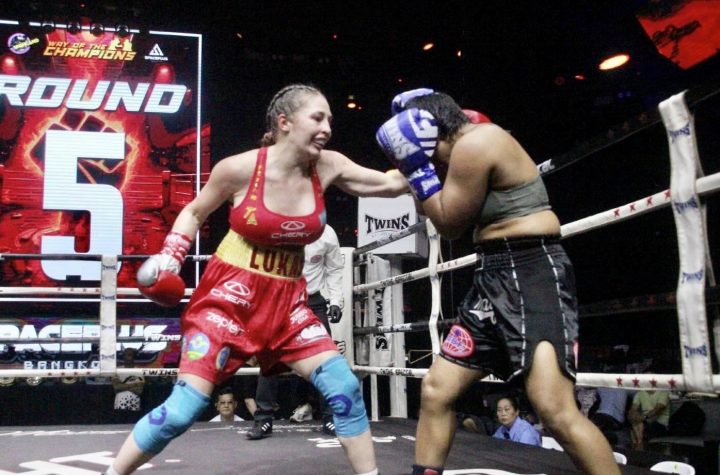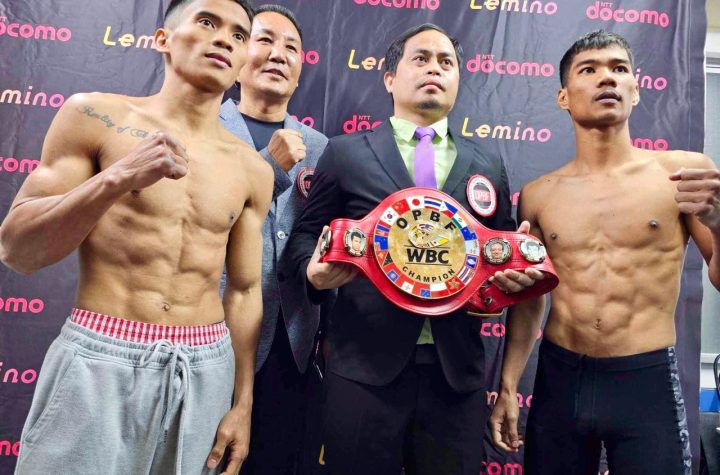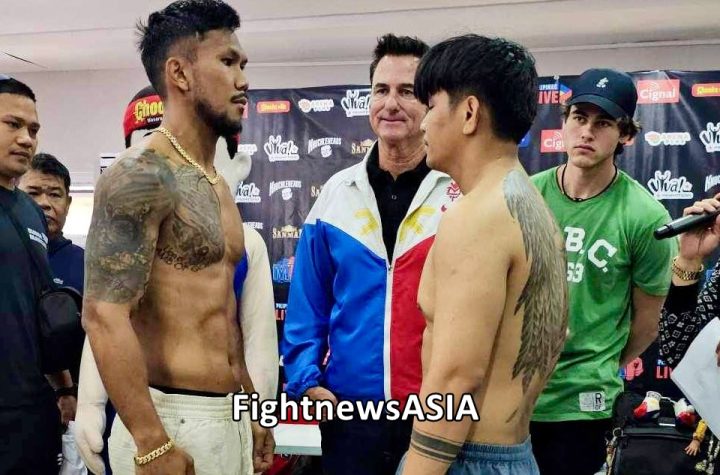
MMAfighting.com
Kazushi Sakuraba and Josh Barnett, who share similar backgrounds in MMA, submission fighting and pro wrestling, are looking at mixing elements of all three in the creation of the team-oriented Quintet submission grappling promotion.
The idea will come to fruition on April 11 with the first of what are hoped to be three shows this year. The debut card takes place in one of Japan’s most famous sports arenas, the Ryogoku Sumo Hall in Tokyo.
The name Quintet comes from the competition being about five-man teams. The first show will feature a four-team one-night tournament under “Survival Series” rules.
Survival Series is a Japanese pro wrestling terminology that actually precedes the WWE’s Survivor Series, and is a team format like what is well-known in the U.S., but executed differently.
Each team will have five men and the total weight of the team has to be under 430 kilograms, or 946 pounds. Each of the four teams will have an order of entrants.
The Survival Series starts with each team’s first pick going at each other for eight minutes. If it turns out that there is a weight differential of more than 15 kilos (33 pounds) in a match, the time limit shortens to four minutes.
To keep the action fast, and fighters healthy for multiple bouts in one day, heel hooks and closed guards are both banned.
If one member wins, he advances immediately to the next match against a fresh second person in the other team’s lineup.
If there is no submission, both men are eliminated. The series ends when all members of one team are eliminated. If it comes down to both teams having one person left, and those two go to a draw, it would go into a sudden death round where each team would then pick one fighter, and they would battle to a finish to see which team advances.
After the two semifinals, the two winning teams continue with a championship series takes place to determine the first champion.
An interesting note is that the championship series will have the lineups reversed from the first-round matches, so the person who entered fifth for his team in the semifinal, will go in first in the final.
”I’ve worked with Josh Barnett,” Sakuraba said. “We’ve thought about and considered how different scenarios may play out and have already made several changes to the rules. We think we have this correct now for the first event.”
Sakuraba noted that when he was in high school wrestling, where in Japan they have team matches, it was best-of-7. His high school team once lost the first four matches in a meet and thus had lost the meet even before Sakuraba had wrestled. So he used that memory to create a situation where a team is still alive to win until the end.
He noted that the weight limit becomes part of the strategy, that you have a big heavyweight like Barnett, but also have to have small, fast fighters on the team.
”Fans are fascinated with little guys taking on big guys and using skill to overcome strength,” he said. “The Japanese fan in particular grew up wanting to see the Japanese fighter use martial arts to beat the bigger foreigners. I wanted to have rules that allowed for that to happen.”
The event will air both live, in the early morning hours of April 11, as well as on-demand on UFC Fight Pass worldwide and will be the featured event of the second annual “Pride Never Die!” week (April 8-15) on the service.
”Last year’s Pride Never Die! week was a big hit with UFC Fight Pass subscribers,” said David Shaw, the UFC Senior Vice President of International and Content. “This year, we thought there’s no better way to remember the excitement of Pride than with an event promoted by and featuring Kazushi Sakuraba, the biggest Pride star of all.”
Sakuraba, 49, and Barnett, 40, have been trying to work out the kinks of such an idea. The two were both proteges of Billy Robinson, the Wigan, England, trained amateur wrestler who by reputation was the king of submission grappling while holding the British heavyweight pro wrestling championship in the 1960s. He later became an even bigger pro wrestling star in the U.S., particularly in the Midwest, and Japan, where he was one of the highest-paid wrestlers of the 70s in that country.
Sakuraba later became the key figure in the rise of popularity of MMA in Japan stemming from his 2000 win in a no-time-limit match with Royce Gracie that went 90 minutes. It was the longest MMA match of the modern era. Given the current rules, it is also something that is unlikely to ever happen again in major league competition. Sakuraba became something of a national hero in beating Royce, Royler, Renzo and Ryan Gracie.
Sakuraba’s popularity moved Pride from struggling in arenas to packing stadiums like the Tokyo Dome. While usually fighting at between 170 and 190 pounds, he usually fought men much bigger than he was. His 2002 fight where he lost to heavyweight Mirko Cro Cop, drew 70,000 fans, the largest in MMA history, to Tokyo National Stadium.
”When I fought Renzo Gracie in 2014, Renzo and me had a legendary fight in Pride and I was excited to rematch with him in a grappling match,” said Sakuraba. “But it was boring! It wasn’t my fault, or Renzo’s fault. It was the rules’ fault. The rules were created for the fighters, not the fans.
”I thought to myself, `Is this the only type of competition there is for grapplers? There has to be something we can do to make it more exciting, to entertain fans, and to give grappling a place where they can perform on a grand stage, like MMA fighters have.’”
The rules of matches where the winner advances to face a new fresh opponent stemmed from some popular Japanese pro wrestling events that took place in the 80s and 90s. The team concept comes from the factions in pro wrestling. But this is the first time those rules were brought to fighting sports competition.
”One of the things that Pride did best was mix the fun factor of pro wrestling with the reality of competition,” Sakuraba said. “I wanted to create an event that I, as a fan, would love to see myself. There will be a lot of strategy,. Each team has bigger fighter and smaller fighters, but it is up to them which order they fight. One team may decide to start off with a heavyweight and the opposing team may decide to save their biggest athlete until last, where he could be facing an exhausted and smaller opponent.”
”We are thrilled to be working with Sakuraba and his team to bring his unique vision to combat sports fans around the world,” said Ant Evans, Fight Pass’ Senior Director of Editorial and Content Acquisitions. “Only Sakuraba-san could have dreamt up a format quite like Quintet.”
”One-on-one matches are normal, are they not?” Sakuraba said. “Even in tournaments, yes, you may fight three times, but with rest and always against an opponent who has also fought the same amount of times you have that night. So I wanted to do an event where it is team vs. team, where it is possible for a fighter to take on two, three, four or even five fighters in a row without rest.”
Sakuraba will be the biggest name on the Haleo Dream Team, the tournament’s marquee team from a name value standpoint. The other team members are Barnett, Marcos Souza, and Japanese MMA fighters Daisuke Nakamura and popular submission ace Hideo Tokoro.
There will be three other teams, a Polaris team with Gregor Gracie as the top star, a Judo team that will include 2008 Olympic gold medalist Satoshi Ishii, and a Sambo team that features former Strikeforce fighter Marius Zaromskis. Zaromskis, when he was Dream welterweight champion, defeated a past-his prime Sakuraba in MMA on the 2010 New Year’s Eve show at the Saitama Super Arena.
While Zaromskis, because of his win over Sakuraba on a show that had such a huge network prime time television audience, is the best known of the Lithuanian sambo team, the real star is Sergej Crecicho, a three-time gold medalist in the sambo world championships.
The Polaris team will include Caol Uno, a Japanese MMA star from another generation who was one of UFC’s first lightweight stars, having big matches with B.J. Penn and Jens Pulver for the championship.
The judo team also includes Yoon Dong-Sik, a world judo bronze medalist who lost to Sakuraba in 2005, as well as Michihiro Omigawa, who fought as a featherweight for years in UFC.
”No matter what organization I am in, including this one, which is my own organization, I am always thinking about how do I give the fans their money’s worth,” said Sakuraba. “How do I make sure that they leave entertained? Even someone who maybe doesn’t know that much about (submission grappling) should be able to understand 5 vs. 5 and that every fighter keeps going until he is beaten.”





More News
Jafarov, Lukas, Purcell Win
Fajardo, Simri Make Weight
Charr, Pulev, Lambert in Bulgaria